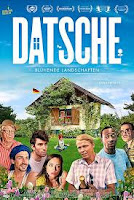Very mixed feelings about this book. Dan Jacobson is a very good writer, and bits of this book made me stop and put it down to reflect on the language and how beautifully it's used. I learned lots, not least about Cecil Rhodes - I'd vaguely known about him from History A Level (especially the Jameson Raid) but I hadn't been aware how big - and how nasty - a figure he had been.
But there were things I wasn't so keen on. I think it's partly the travel writing genre. It seems to me that everyone who engages in this ends up rather sneering at the people they meet, either for their ordinariness, or their quirkiness, or for any other reason. No travel writer ever seems to be impressed by the wisdom, patience or fortitude by the people they encounter on the way - perhaps it's the fact that they aren't traveling, as the writer is, that makes them seem so unimpressive. And there's a lot of that here. Jacobson doesn't think much of the Whites of Southern Africa and their self-delusions, but he doesn't seem to like the Africans (or Indians either) that he meets. He doesn't seem to have any fellow-feeling or common humanity with the impoverished ones, and he doesn't think much of those who have clawed themselves into positions of minor power or success.
He's great on the buildings, and the landscapes, though everything is suffused with a sense that it's in a state of decline...perhaps a natural consequence of returning to somewhere that you knew in your youth. There's no feeling that anything is getting better, even though he's writing at the very moment that Apartheid is coming to an end. Curiously my only visit to South Africa was at almost the same time, and I met lots of people, Blacks and Whites, who were full of hope for what they thought was to come.














